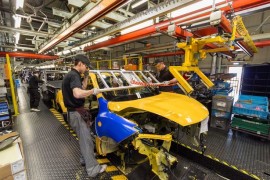
I was asked the other day by a Leave-supporting politician whether business wanted a quick decision. The doubt about Brexit hard or soft must be difficult for you, he said: wouldn’t you prefer just to get on with it and know where you stand?
Yes, if the outcome is a soft one. The reason for the delay is that everyone is haggling for a good deal. Car companies want to stay inside the customs union. Banks want to carry on passporting their services across the EU. Many employers want to keep their EU27 citizens in their jobs.
A swift decision risks losing all that. International trade negotiations are complicated. A lot rests on the detail. A quick agreement would likely be a bad agreement. 40 plus years of negotiation can’t simply be replaced overnight.
The cost of the delay, though, is the uncertainty. Investment decisions will be delayed, key staff will leave and go to other countries, and the economy will gently slow down and become less productive. And this, don’t forget, is the good outcome.
What’s it going to take for Leave supporters to admit they have made a mistake?
